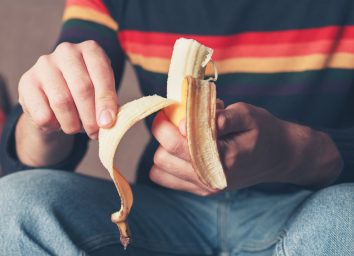10 Foods That May Affect Your Risk of Prostate Cancer
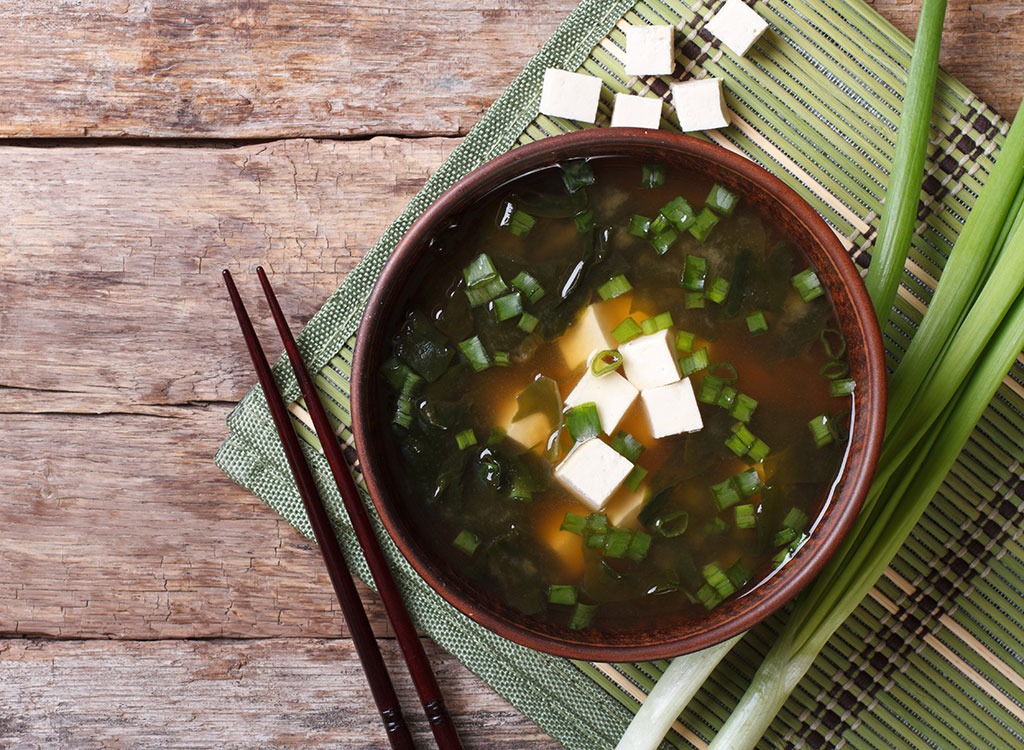
Ahhh, June. The recent flip of the calendar brings so much more than the official first day of summer. In particular, this month is home to National Men's Health Month. So, what better time to talk about a disease that disproportionately plagues more men than women?
In the United States, prostate cancer is the most common cancer in American men, behind skin cancer. To give you some perspective, about 1 in 7 men will be diagnosed with prostate cancer during his lifetime.
Mainly affecting men over the age of 65, this aggressive disease is more common in America than any other country. Researchers everywhere are wondering why. As it turns out, experts believe that our diet has something to do with it.
As much as we wish it was true, eating one particular food will never ensure you will live a cancer-free life. However, research is beginning to show that a balanced diet is related to cancer prevention. After an in-depth analysis, professionals at Cancer Research UK announced that they believe 9 out of every 100 cancer cases can be prevented simply by changing what we eat.
Hungry for answers, we did the dirty work and figured out which foods are imperative to eat when it comes to preventing prostate cancer as well as which foods to limit. Find out the answers below, and then add these 50 Best Ever Foods for Men to your grocery list as well to double down on your health and wellness.
FOODS THAT DECREASE YOUR LIKELIHOOD OF PROSTATE CANCER

Research has shown that these foods contain biologically active compounds that may help to reduce your risk of prostate cancer. These foods are not a treatment for a cancer diagnosis. You should always consult with a medical professional before making any significant changes to your lifestyle.
Tomatoes

Tomatoes are known to help protect against prostate cancer because of the plant chemical lycopene. Lycopene is a free-radical fighting antioxidant: a compound that can destroy toxic, disease-promoting cells. By consuming lycopene-rich foods, the chances of free radicals attacking your immune system are significantly reduced. According to Cornell University researchers, lycopene becomes more available to the body when tomatoes are cooked. So that's even more reason to top your pasta with marinara sauce! Just make sure it's a better-body pick with our exclusive report: 40 Best and Worst Pasta Sauces.
Eat This! Tip:
Desperate for more lycopene? Watermelons, pink grapefruits, and guava contain this awesome plant-chemical, too!
Fruits
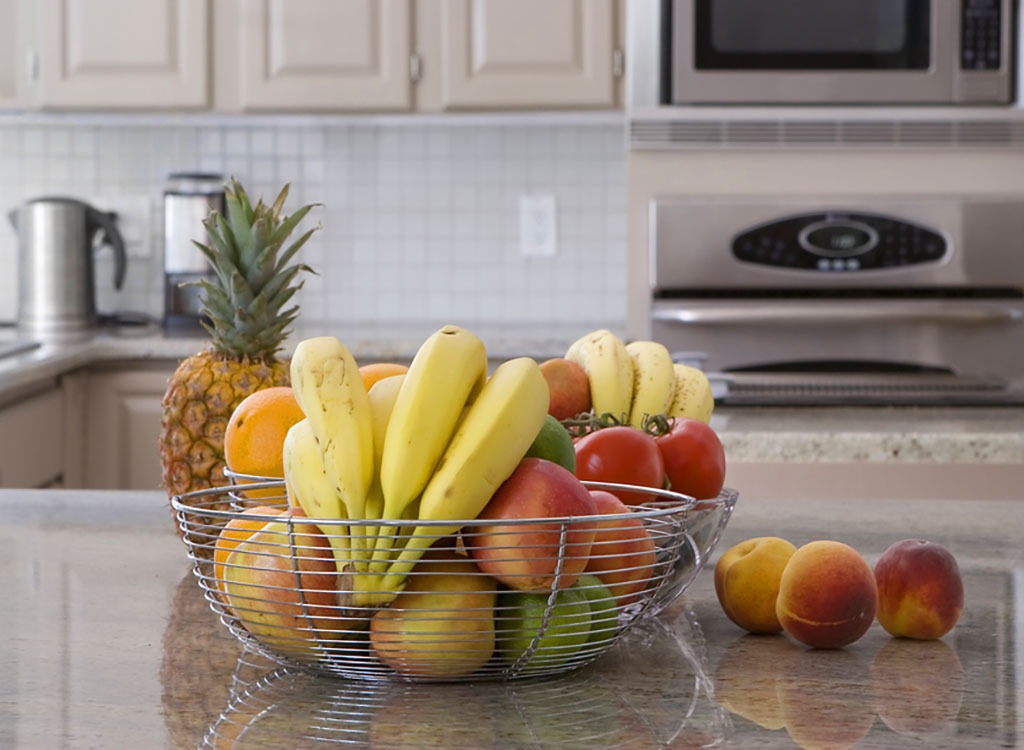
While you're pounding fruits loaded with lycopene, it's important to incorporate as many other fruits as possible. Harvard is currently conducting a study regarding diet and prostate cancer known as MEAL (Men's Eating and Living.) These participants are aiming to eat nine servings of fruits and veggies daily. Fruits have great health benefits and are loaded with disease-fighting nutrients. Too many to choose from? Try apples, apricots, and plums — juicy, sweet filled with fiber and pectin. In a clinical study, results showed that consumption of these polyphenol-rich fruits vastly reduces the appearance of cancerous cells.
Vegetables
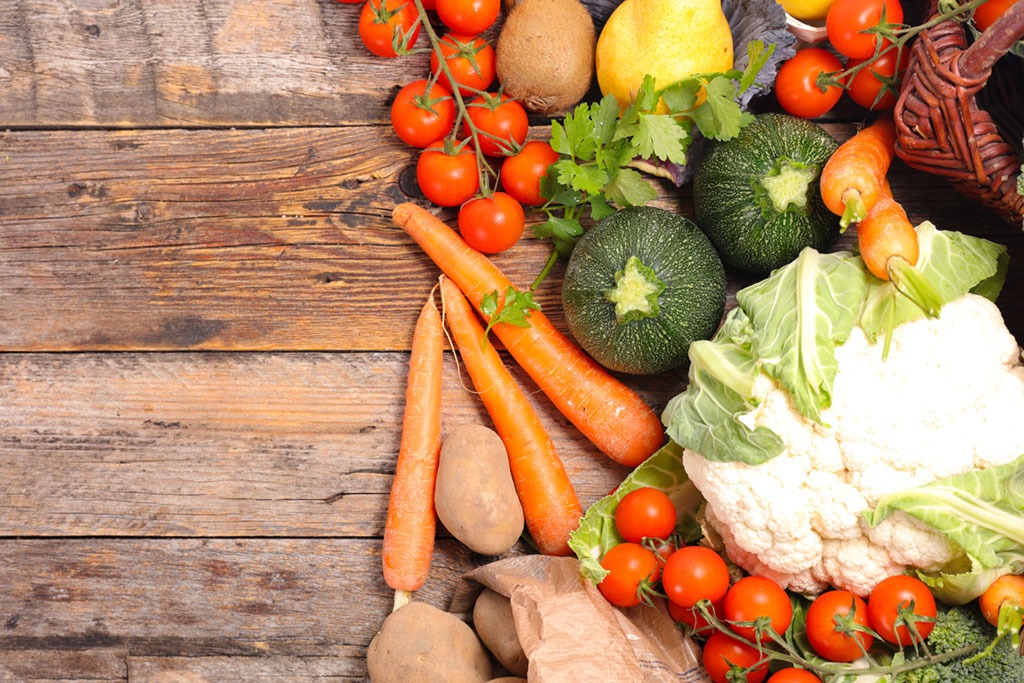
Maybe now you'll listen to your Mom's voice inside your head and really eat those vegetables! In a study published in The Journal of the National Cancer Institute, evidence revealed that when men ate less than 14 servings of vegetables weekly, they significantly increased their risk for prostate cancer compared to those who ate 28 or more servings. Twenty-eight servings may sound alarming, but it's a lot easier to get in your daily diet than you think. Add some vegetables to your eggs, a side salad at lunch, munch on some peppers, cucumbers, or carrots when you need a snack and, just like that, your goal to 28 servings is complete! Why not try these 20 Most Filling Fruits and Veggies?
Cruciferous Vegetables
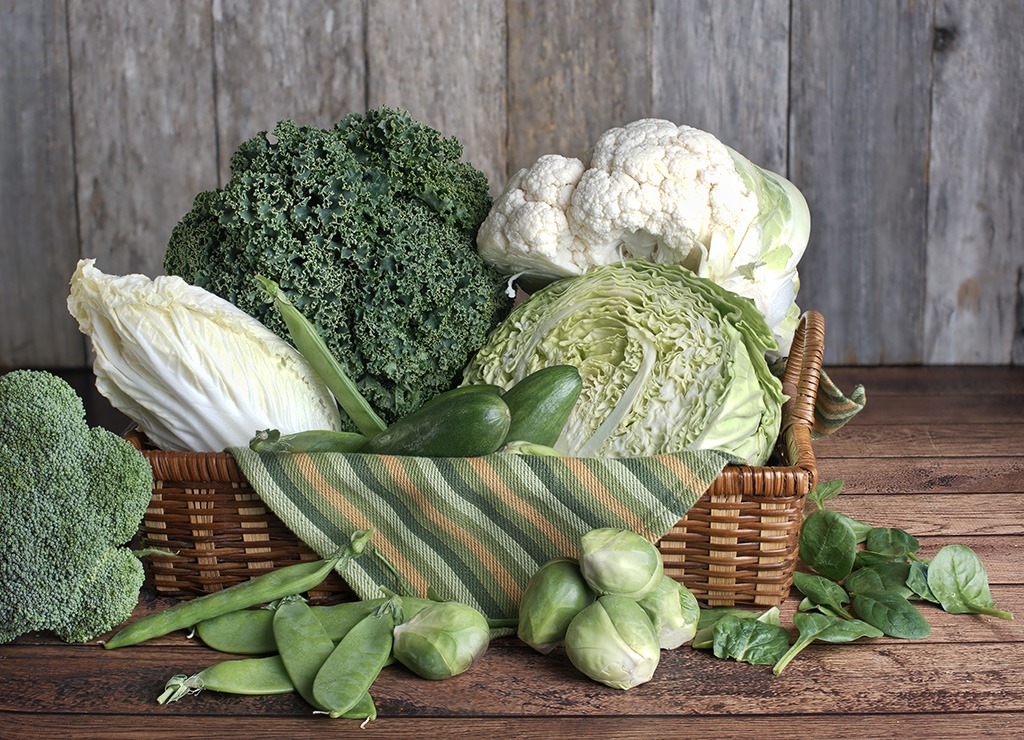
They might have tasted bitter as a kid, but here's the bitter truth: cruciferous vegetables are key players in the fight against cancer. This sub-category of vegetables includes broccoli, cauliflower, cabbage, brussel sprouts, bok choy, spinach, and kale. The link between all of these is isothiocyanates — active compounds which have been proven to possess potent anticancer properties. These secret agents have been shown to protect cells from DNA damage and inhibit tumor blood vessel formation when tested. Saute up some broccoli with a little bit of extra virgin olive oil, garlic, and crushed red pepper flakes for an easy and delicious side dish!
Green Tea
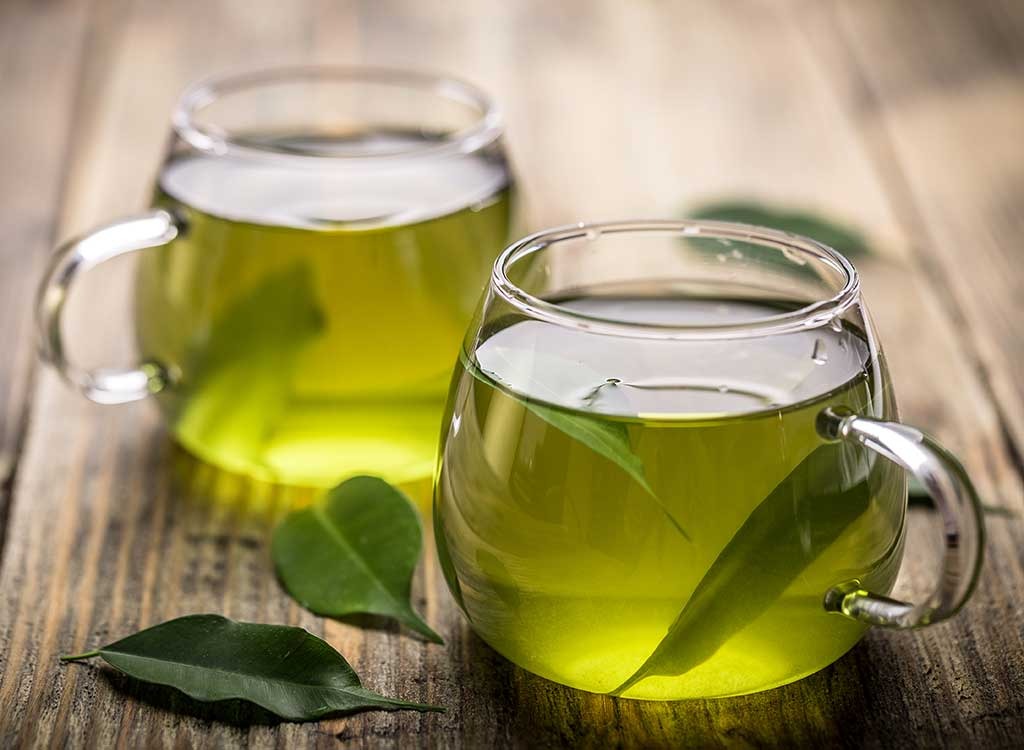
Besides boosting your metabolism and memory, green tea can be used for even greater benefits. The delicious beverage, whether hot or cold, contains a ton of EGCC: an antioxidant that can help protect cells from free-radicals. Clinical studies in the beginning stages show promising results that this antioxidant could help to block pathways that allow the growth of prostate cancer cells. So the next time you need an afternoon pick-me-up, skip that cup of joe, just grab a green tea!
Fermented Soy
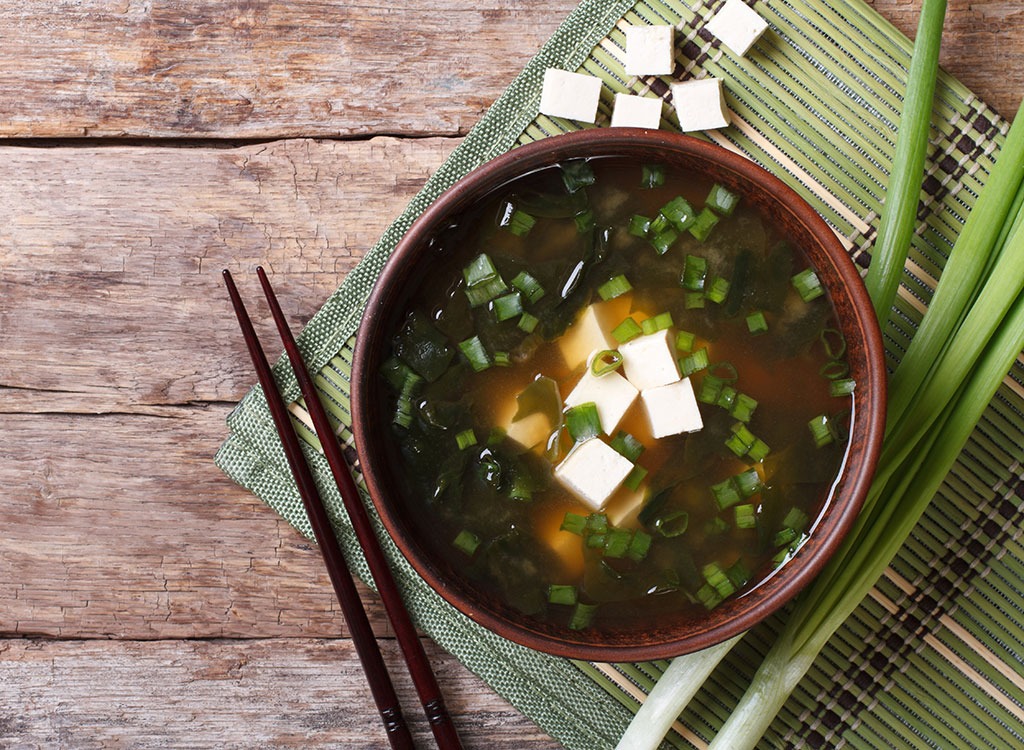
Contrary to what you may think, soy won't give you man boobs, but it may help decrease your risk of prostate cancer! Tofu, soy milk, tempeh, soybeans — the options are endless. These foods are all rich in phytoestrogens, which have been proven to change the dynamic of genes that are commonly associated with prostate cancer.
Why does this work? Dr. Gary R. Cohan, MD, a Los Angeles-based, Internal Medicine-specializing physician and medical researcher explains that this food group contains "naturally-occurring plant compounds that have estrogen-like activity." These phytoestrogens can change your hormone balance in a way that decreases levels of prostate specific antigen or PSA. High levels of PSA is often an indicator of increased risk of prostate cancer or other prostate disorders.
FOODS THAT INCREASE YOUR LIKELIHOOD OF PROSTATE CANCER

Researchers believe the reason why prostate cancer is more common in America than any other country is because of our unique diet that is high in fats, sugar, and protein, and low in fiber and vegetables. Find out which common foods you're eating below that might be increasing your risk of this cancer.
Red Meat
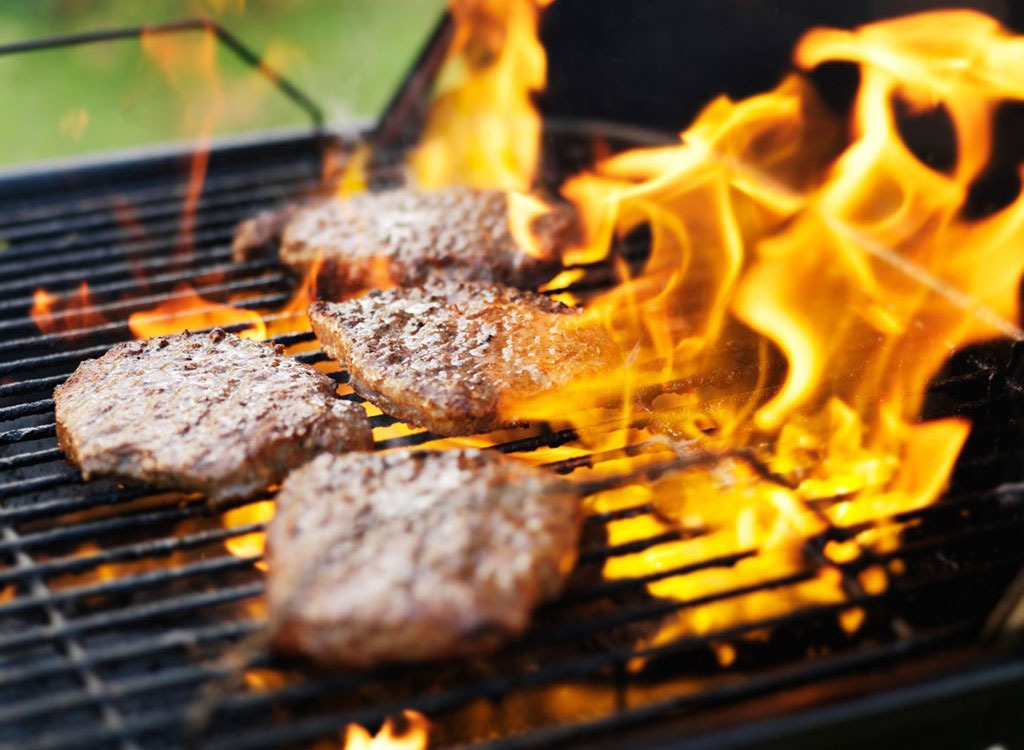
Sorry charred burger lovers. Studies are now showing that those who consume more red meat have higher chances of developing prostate cancer. The reason isn't specifically tied to red meat but, rather, how it's typically prepared. When meat is cooked at high temperatures, an internal chemical reaction creates two chemicals: heterocyclic amines (HCAs) and polycyclic aromatic hydrocarbons (PAHs). These two chemicals have been proven to amplify the appearance prostate chemicals in animals. And, because it's still being tested, officials are recommending to limit red meat consumption to no more than three 3-ounce servings weekly.
Dairy
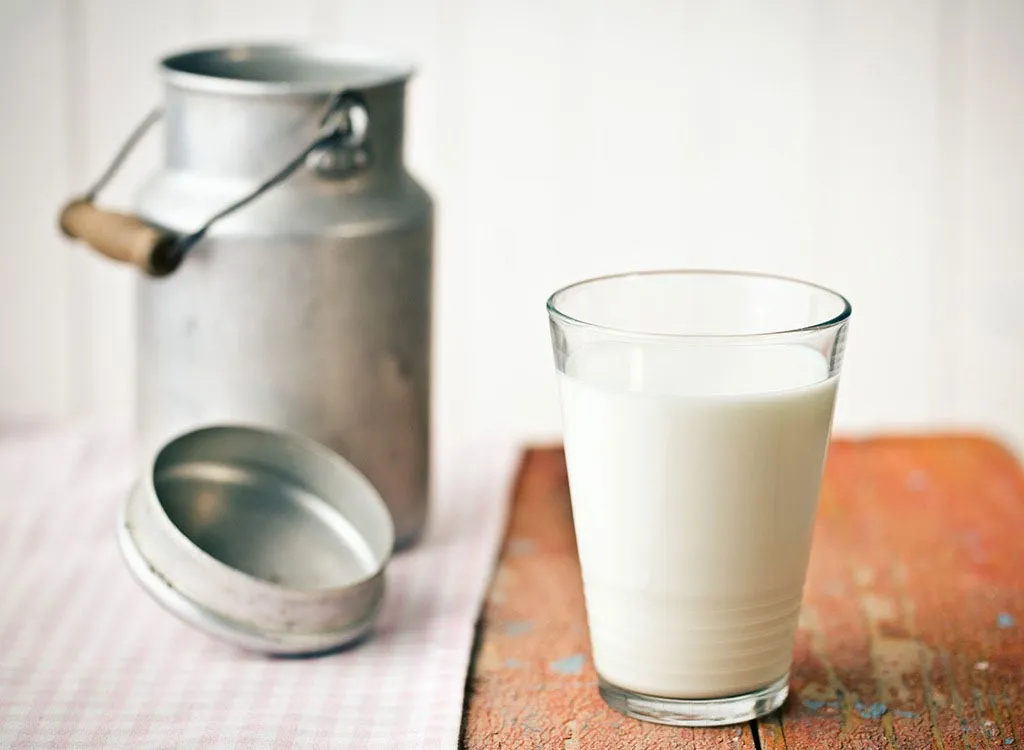
Although calcium is great for bone strength, experts are discovering a link between high calcium intake and the development of prostate cancer. This is because calcium-rich dairy products can lower your body's count of 1,25-dihydroxyvitamin D3. This hormone is known to actively protect men against prostate cancerous cells, so, by lowering your body's natural count, you're raising the chances of the cancer's development.
In a study conducted by the Department of Epidemiology at the Harvard School of Public Health, an evident link between high consumption of dairy and calcium products and the development prostate cancer was discovered. Results showed that the men with the highest consumption rates of dairy were more likely to develop prostate cancer than those who consumed less. If you're looking for dairy-free alternatives to calcium, don't miss these 20 Calcium Rich Foods That Aren't Dairy.
Zinc Supplements
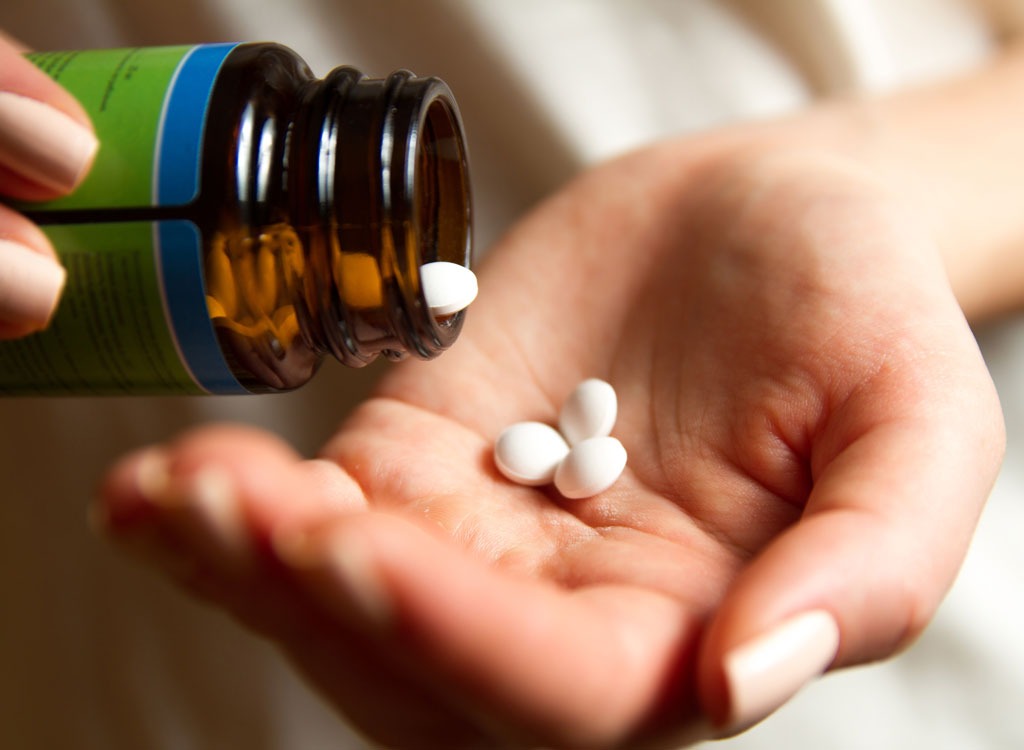
Vitamins have their ups and downs but this one is still up in the air so we're steering clear. In a study published in the Journal of the National Cancer Institute, results showed that men who consumed over 100 mg of zinc daily had higher chances of being diagnosed with prostate cancer down the line.
Alcohol

Don't worry, you don't have to say goodbye to your favorite brew completely; however, a study in the journal Cancer Epidemiology, Biomarkers & Prevention shows that those consume who more than 20 drinks a week — that's 3 a day — are twice as likely to be diagnosed with advanced prostate cancer than those who enjoy a few every now and then. Simply cutting back on alcohol also happens to be one of our 50 Ways to Lose 10 Pounds—Fast!
